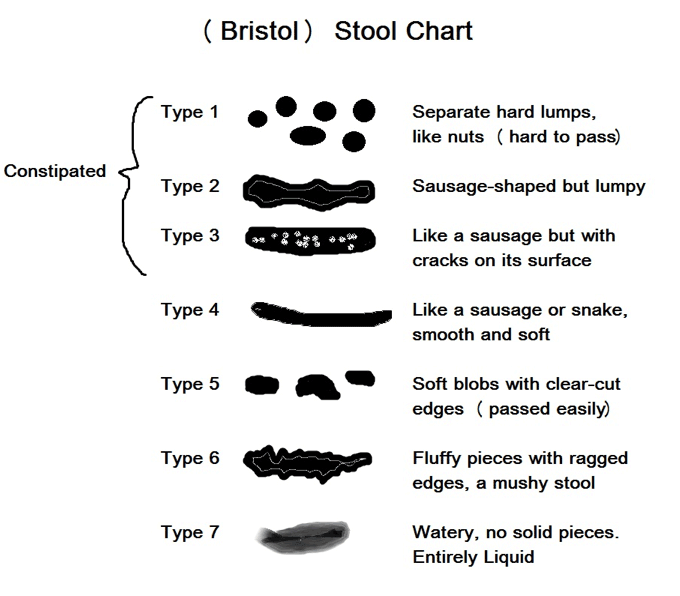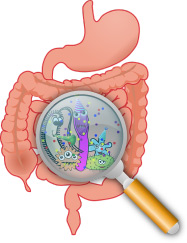Constipation causes a lot of discomfort, and can be caused by one or a combination of factors. In the informative article below Dr. Bristow explains the importance of finding the root cause behind your digestive problems, and outlines a few underlying conditions that can cause constipation.
Bowel movements tell us so much about the health of our entire body, but in particular the health of our large intestine. Constipation is an incredibly common concern; it’s defined as infrequent or difficult bowel movements. Constipation is quite common, affecting 1 out of 4 Canadians. We’re often told its okay to go every other day or every couple of days, but physiologically we need to eliminate waste every day.
Bowel Movements: what’s normal?
It’s normal to have 1-3 bowel movements (BM’s) per day. Movements should be passed easily in 1 or 2 large and long pieces, have no undigested food (some common exceptions) and hold their shape as it’s flushed. There should be no discomfort or spasms during or preceding your BM, and no blood or mucous should be present. It’s important that you also feel complete evacuation.
Let’s have a look at some stool types:

Type 1-3 are constipated stools – they are dry as water is being reabsorbed.
The main function of the large intestine is to form stool and reabsorb water. Unfortunately the longer stool sits in the colon the more water and toxic products your body has set aside for removal are reabsorbed. This is why constipated stools are often dry, small and difficult to pass.
You can go every day and still be constipated if you are having type 1-3 stools, however many people experience this type of constipation along with missing several BM’s in a day or week. It may be common, but it’s not physiologically normal to have less than one BM/day.
Chronic constipation has many contributing factors. Notably: Small Intestinal Bacterial Overgrowth (common cause of IBS) is a cause that can be treated. If you’re looking for more information on Irritable Bowel Syndrome (IBS) expressed as chronic constipation, chronic loose stools or a combination of the two, you should consider reading this article about SIBO.

Dietary causes of constipation are extremely common; however, the particular dietary triggers are unique to each person. This is where understanding your particular food sensitivities are very helpful. When you continuously consume foods which spark an immune response within the gut, it damages the mucosal membrane which is intended to protect you from your external environment as well as effectively absorb nutrients. Have a look at my leaky gut article if you are interested in understanding more about food sensitivities.
 Other causes of constipation include:
Other causes of constipation include:
- Lack of digestive enzymes, including insufficient stomach acid.
- Poorly functioning liver and gallbladder (lack of bile secretion).
- Impaired muscular power that propels the smooth muscle tissue of the gut forward, moving food and stool through the GI system.
- Resisting the calls of nature! Whether circumstantial or not, repeatedly ignoring cues for a bowel movement leads to constipation.
- Lack of physical exercise.
- Hypothyroidism.
- Mental health concerns & the Gut-Brain Axis. The brain activates the vagus nerve (a nerve that carries information to and from the brain) which activates the nervous system in our gut. It’s responsible for stimulating secretion of enzymes & motility of the smooth muscle tissue of the gut. A loss of digestive function can be caused by an underactive vagus nerve. This is more often seen in those who’ve experienced concussions, or who’ve had food poisoning or GI illnesses and digestion has since struggled.

What Can You Do?
The most important thing as always is to uncover the reason or reasons why you are chronically constipated. Remember that constipation is a symptom, not a cause, in order to heal the digestive system the root cause of constipation needs to be healed. A Naturopath can help you dissect and heal the root cause. I also recommend a colon cleanse if you suffer from chronic constipation. Even if you go daily, but tend towards type 1-3 on the Bristol Stool Chart this is considered constipated and the result is a colon which lacks tone, moisture, movement and has quite a bit of accumulated toxic product, stool and gas.
I hope this has been helpful. If you would like personalized help with constipation, consider booking an appointment with me.
